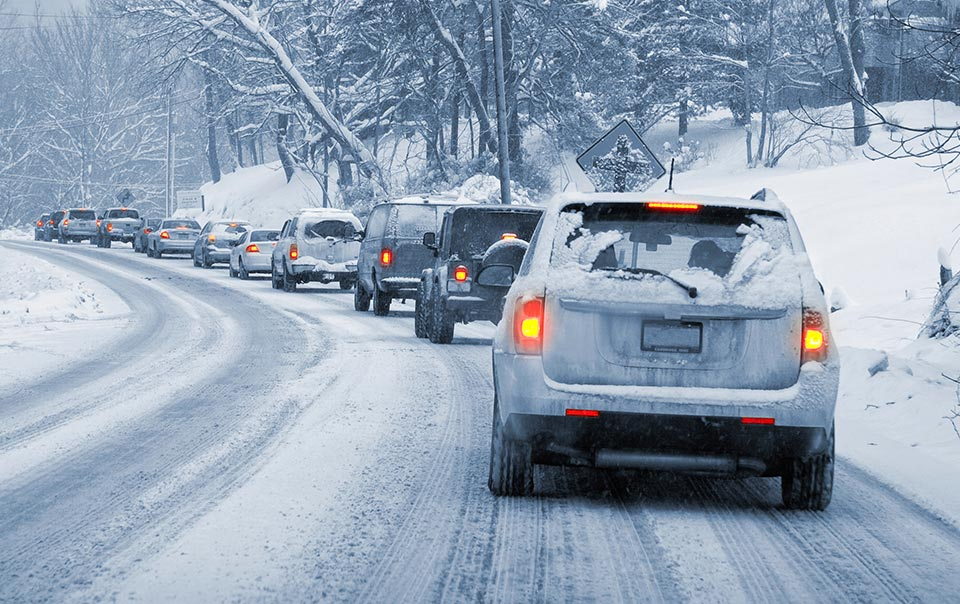4 Types of Vehicle Damage to Watch Out For On Bad Atlanta Roads

If you’re driving in Atlanta, you’re no stranger to bad roads. The city’s roads are infamous for their potholes, cracks, and other types of damage that can wreak havoc on your vehicle. In this article, we’ll discuss four types of vehicle damage to watch out for on bad Atlanta roads and provide tips on how to prevent and repair them.
Pothole Damage
Potholes are the bane of drivers’ existence, especially in Atlanta. They can cause serious damage to your vehicle, such as flat tires, bent rims, and even damage to your suspension system. When driving on bad Atlanta roads, be sure to keep an eye out for potholes and try to avoid them if possible. If you can’t avoid a pothole, slow down as much as possible before hitting it to reduce the impact.
Read More: GARDASIL VACCINE LINKED TO OVARIAN FAILURE DEATH (2023)
Suspension Damage
Bad roads can also cause damage to your vehicle’s suspension system. When your suspension is damaged, your car may not handle as well, and you may experience a rough ride. If you notice any of the following symptoms, you may have suspension damage: your car pulls to one side, the steering wheel vibrates, or you hear clunking or banging noises while driving. If you suspect you have suspension damage, take your vehicle to a mechanic as soon as possible.
Alignment Damage
Driving on bad Atlanta roads can also cause damage to your vehicle’s alignment. If your car is out of alignment, it may pull to one side, the steering wheel may be off-center, or your tires may wear unevenly. If you notice any of these symptoms, you may have alignment damage. Take your car to a mechanic to have it checked and aligned if necessary.
Tire Damage
Finally, bad roads can cause damage to your vehicle’s tires. Potholes, debris, and other hazards on the road can cause punctures, bulges, or other types of damage. If you notice a bulge or bubble on one of your tires, this is a sign of internal damage, and the tire should be replaced immediately. If you notice a puncture, you may be able to repair the tire if the damage is not too severe.
Read More: FL. Power Plant in Spotlight After Several Accidents (2023)
Preventative Measures
While it’s impossible to avoid bad roads entirely, there are some steps you can take to reduce the risk of vehicle damage. First, try to avoid roads that are known to be in poor condition. Second, slow down when driving on bad roads, as this can reduce the impact of potholes and other hazards. Third, make sure your tires are properly inflated and in good condition. Finally, have your vehicle inspected regularly by a mechanic to catch any potential problems before they become serious.
Repair Options
If you do experience vehicle damage while driving on bad Atlanta roads, there are several repair options available. For pothole damage, you may need to replace your tire or rim if the damage is severe. Suspension damage may require replacement of the damaged parts or even the entire system. Alignment damage can usually be corrected by adjusting the alignment of your wheels. Tire damage may be repairable, depending on the severity of the damage.
Conclusion
Bad roads can cause serious damage to your vehicle, but by taking preventative measures and being aware of the types of damage to watch out for, you can reduce your risk. If you do experience damage, there are repair options available, so don’t hesitate to take your vehicle to a mechanic if you notice any of If you do experience damage, there are repair options available, so don’t hesitate to take your vehicle to a mechanic if you notice any of the symptoms we’ve discussed in this article. By addressing the issue early, you can avoid more costly repairs down the road.
FAQs
How do I know if my car has been damaged by a pothole?
If you’ve hit a pothole, check your tires and rims for visible damage, and listen for any unusual noises while driving. If you notice anything out of the ordinary, take your vehicle to a mechanic for an inspection.
Can alignment damage be fixed?
Yes, alignment damage can usually be corrected by a mechanic. It’s important to have it addressed as soon as possible to prevent further damage and uneven tire wear.
Is it safe to drive on a damaged tire?
No, it’s not safe to drive on a damaged tire. A bulge or bubble on a tire is a sign of internal damage and the tire should be replaced immediately.
How can I avoid potholes?
Try to avoid roads that are known to be in poor condition. If you do come across a pothole, slow down as much as possible before hitting it to reduce the impact.
How often should I have my vehicle inspected by a mechanic?
It’s a good idea to have your vehicle inspected by a mechanic at least once a year to catch any potential problems before they become serious.




